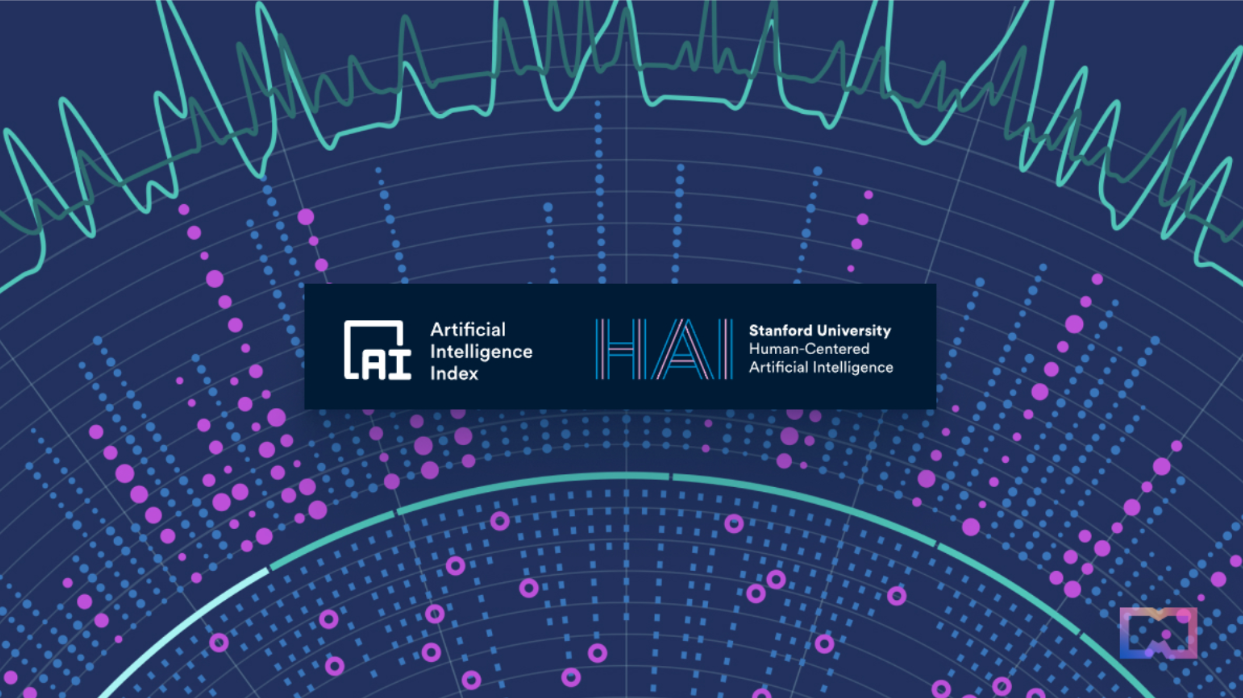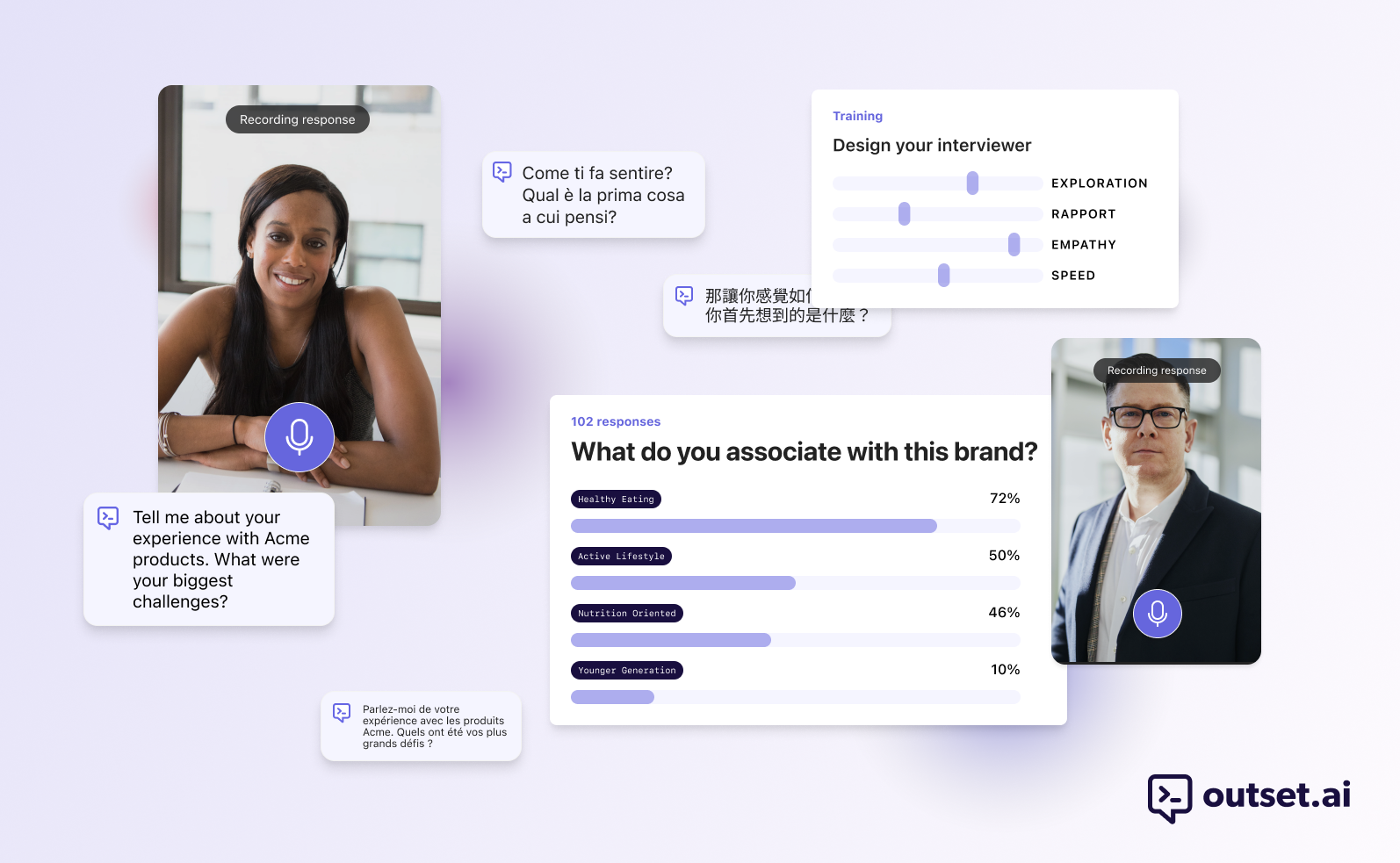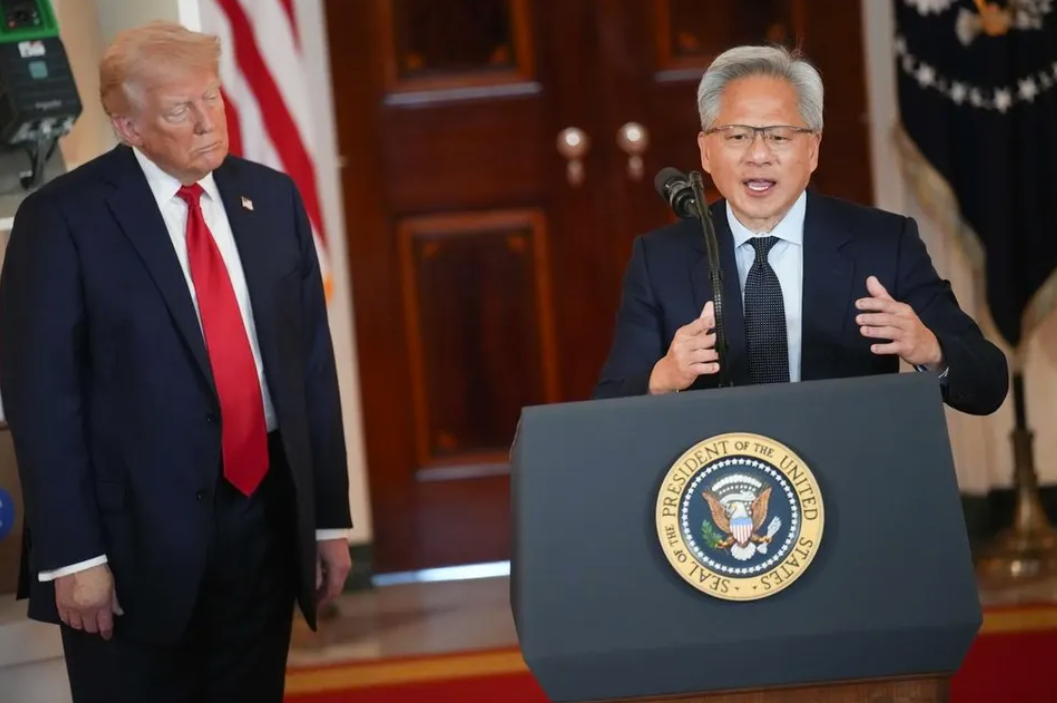The 2024 Artificial Intelligence Index, published by the Stanford Institute for Human-Centered Artificial Intelligence (HAI), offers valuable insights into the impact and progress of AI (Radical Scientific Partner FeiFei Li is Co-Director of HAI). This comprehensive annual report provides a data-driven analysis of AI’s advancements, covering key themes such as research, ethics, policy, public opinion, and economics. In this week’s Radical Reads, we share some of the key takeaways from this year’s report.
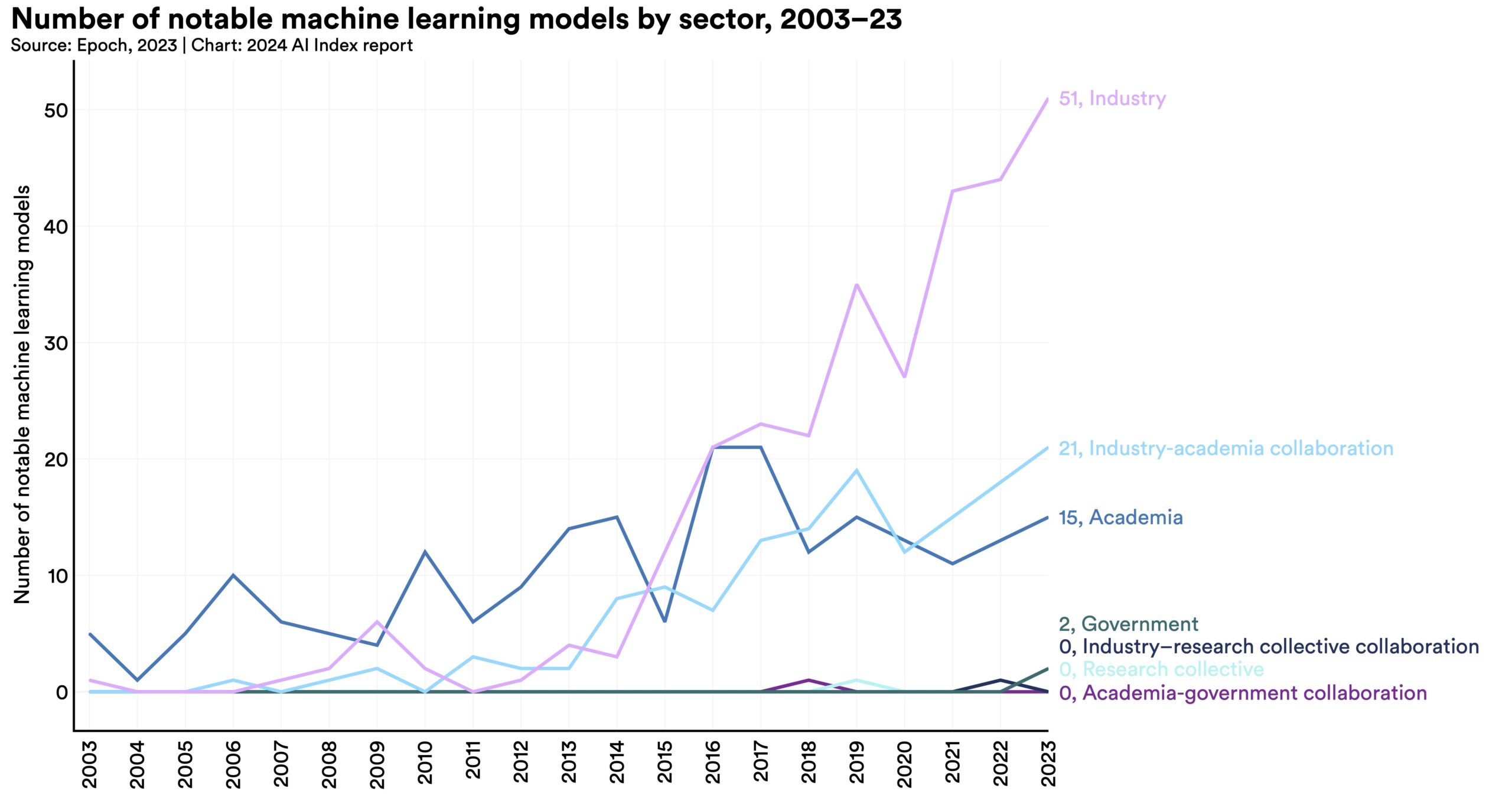
Machine learning continues to be dominated by industry models
In 2023, industry produced 51 notable machine learning models, while academia contributed only 15. There were also 21 notable models resulting from industry-academia collaborations in 2023, a new high. According to estimates, the training costs of state-of-the-art AI models have reached unprecedented levels. For example, OpenAI’s GPT-4 used an estimated $78 million worth of compute to train, while Google’s Gemini Ultra cost $191 million for compute. These high costs may explain why academia is playing a less significant role in the development of machine learning models.
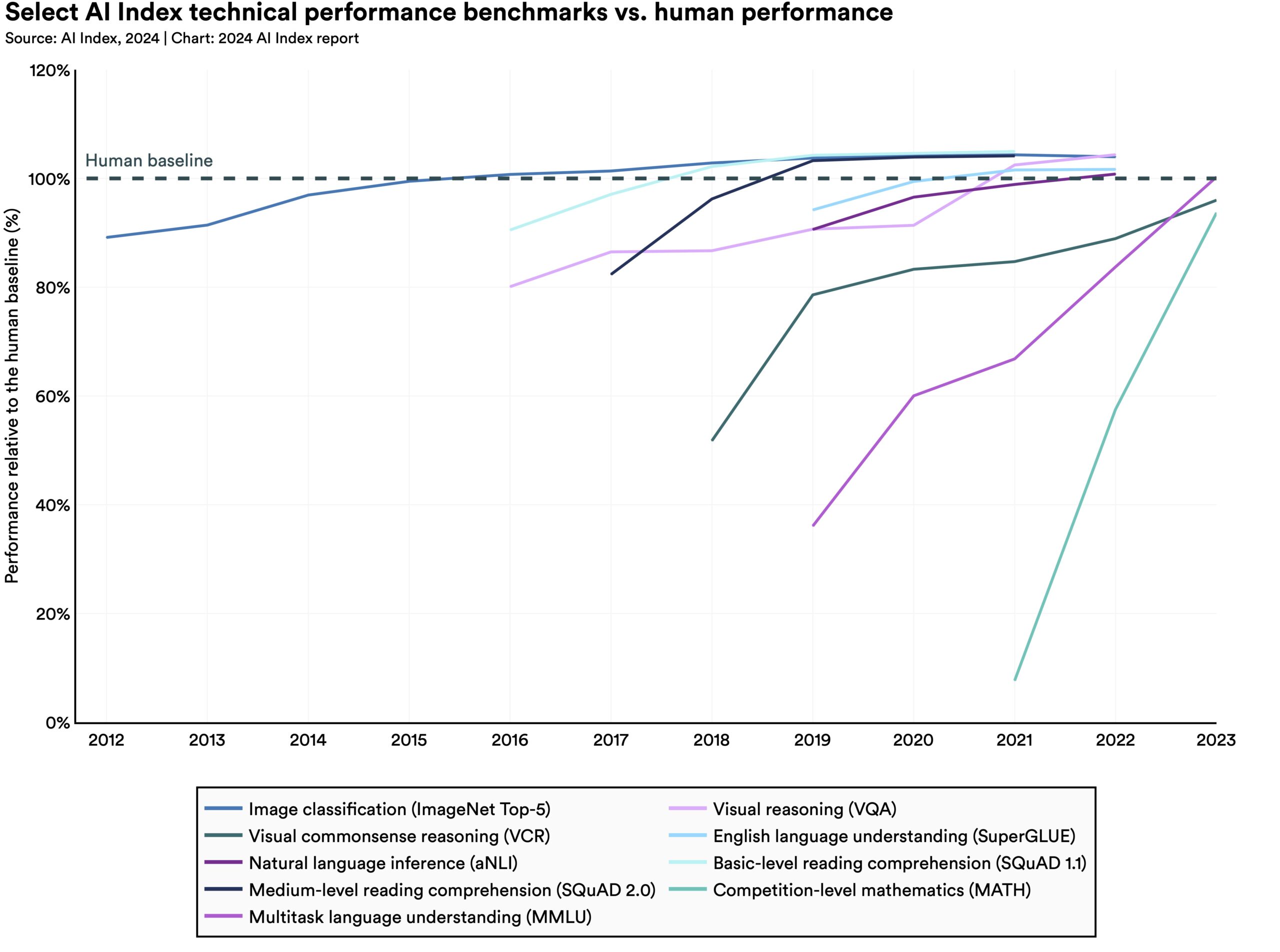
AI beats humans on some tasks, but not on all.
AI has surpassed human performance on several benchmarks, including some in image classification, visual reasoning, and English understanding. Yet it trails behind on more complex tasks like competition-level mathematics, visual commonsense reasoning and planning. With generative models producing high-quality text, images, and more, benchmarking has slowly started shifting toward incorporating human evaluations like the Chatbot Arena Leaderboard rather than computerized rankings like ImageNet or SQuAD. Public feeling about AI is becoming an increasingly important consideration in tracking AI progress.
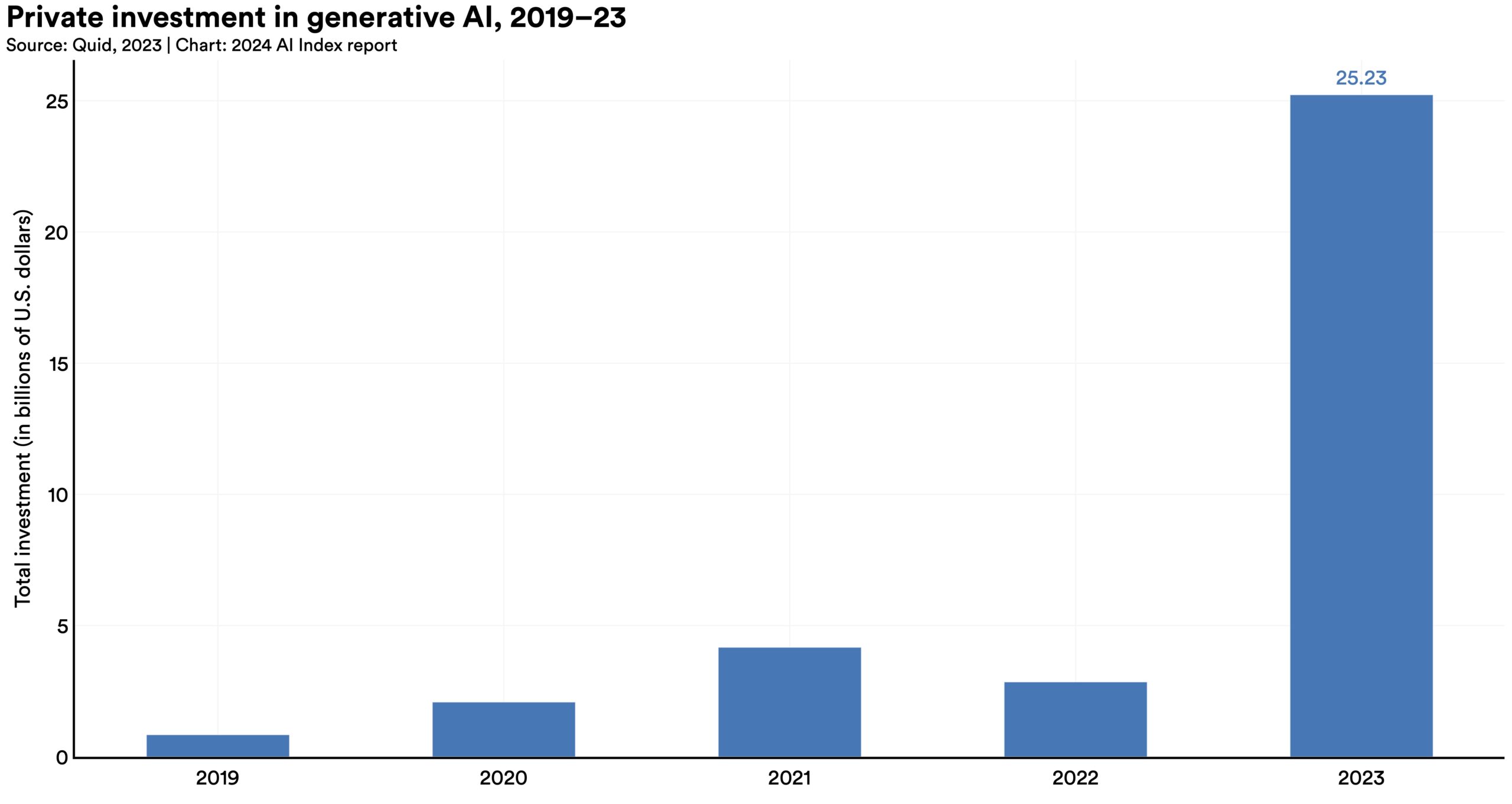
Generative AI investment skyrockets.
Despite a decline in overall AI private investment last year, funding for generative AI surged, nearly octupling from 2022 to reach $25.2 billion. Major players in the generative AI space, including OpenAI, Cohere, Anthropic, Hugging Face, and Inflection (which has since been largely absorbed into Microsoft), reported substantial fundraising rounds. In 2023, AI was mentioned in 394 earnings calls (nearly 80% of all Fortune 500 companies), a notable increase from 266 mentions in 2022. Since 2018, mentions of AI in Fortune 500 earnings calls have nearly doubled. The most frequently cited theme, appearing in 19.7% of all earnings calls, was generative AI.
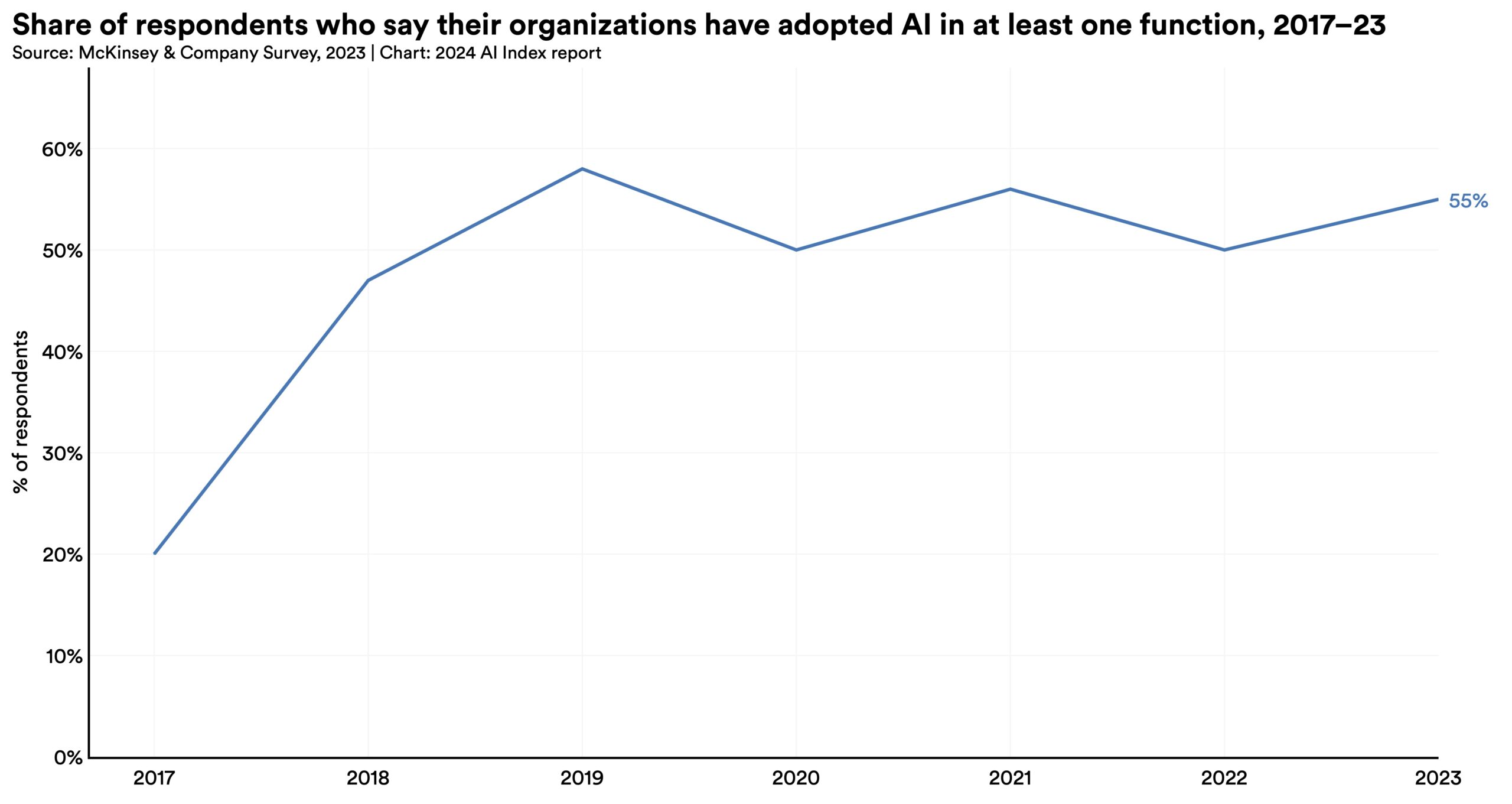
AI organizational adoptions tick up: decreasing costs and increasing revenues
AI adoption at the enterprise level is increasing with 55% of organizations now using AI (including generative AI) in at least one business unit or function, up from 50% in 2022 and 20% in 2017. A new McKinsey survey reveals that 42% of surveyed organizations report cost reductions from implementing AI (including generative AI), and 59% report revenue increases. Compared to the previous year, there was a 10 percentage point increase in respondents reporting decreased costs, suggesting AI is driving significant business efficiency gains.
Download the full AI Index Annual Report or explore its chapters.
AI News This Week
-
Taylor Made by Drake (Instagram)
Drake released an AI-powered diss track on Friday night, deepening his beef with fellow rapper, Kendrick Lamar Drake released a song on social media entitled “Taylor Made Freestyle,” which uses AI-generated vocals. The track employs artificially-created verses from Snoop Dogg and the late Tupac Shakur, sparking controversy over the use of AI to enlist other artists’ voices in their escalating feud.
-
Can AI help solve Japan’s labour shortages? (BBC)
Japan, facing a labour shortage due to both a declining and aging population, is increasingly relying on AI for solutions. Companies have implemented AI to increase production speeds and reduce manpower by 30%. In agriculture, AI apps assist farmers in diagnosing crop issues. AI is also being explored in education to address a lack of English language teachers. In a country where change happens slowly, Japan is embracing AI with less resistance than others. While AI may improve the efficiency of the workforce, it has not yet reached the point of replacing humans.
-
The Power List: AI (Macleans)
The Canadian Power List recognizes Canadians working to improve the country in various sectors. This year’s list acknowledges Canadians building AI technology and includes Radical Ventures portfolio company founders, Aidan Gomez, Ivan Zhang, and Nick Frosst of Cohere. Radical Scientific Adivsor Alán Aspuru-Guzik is also recognized for his role as director of the University of Toronto’s Acceleration Consortium, which is using AI to develop new materials, including cures for previously incurable diseases.
-
Untether AI to collaborate with semiconductor giant arm on smart vehicle solutions (BetaKit)
Toronto-based semiconductor scale-up and Radical Ventures portfolio company, Untether AI, is launching a new collaboration with global chip design giant Arm, whose technology is found in chips made by AMD, Intel, Nvidia, Qualcomm and Samsung, to develop advanced driver-assistance systems and technology for self-driving cars. Untether AI has developed a chip architecture for neural net inference that reduces power consumption by reducing the distance data must travel to the absolute minimum, eliminating the cost of moving data to processors, which traditionally dominates energy consumption.
Radical Reads is edited by Ebin Tomy (Analyst, Radical Ventures)

